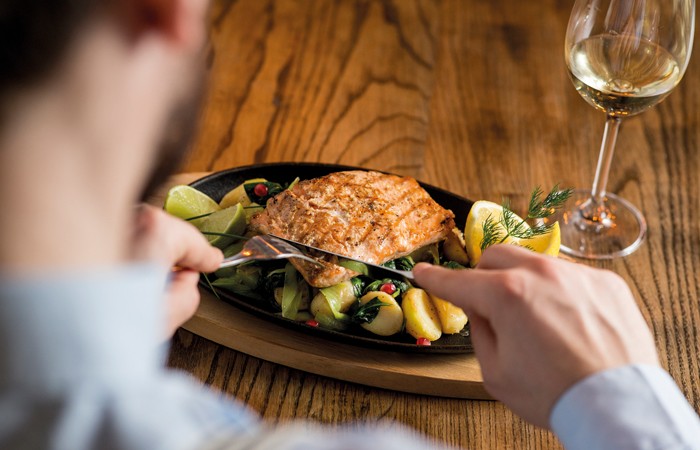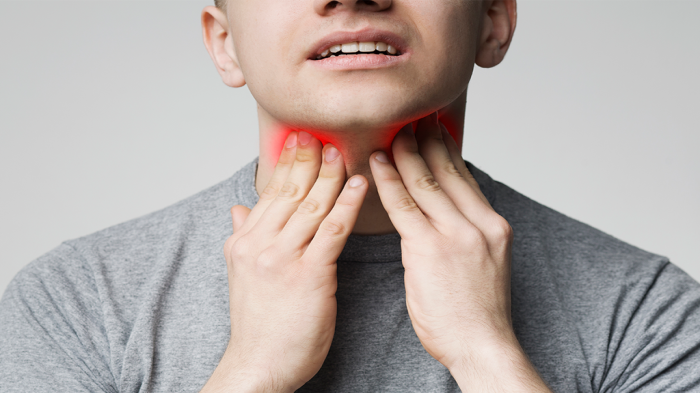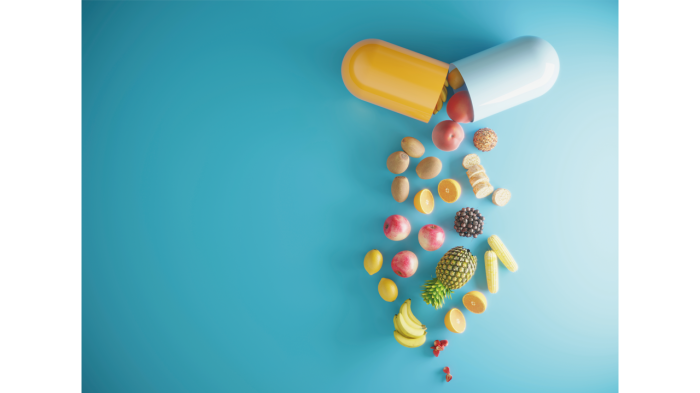In OTC Category Reviews
Follow month by month updates on topics including asthma, mental health and skin conditions and be able to provide informed advice to customers at the counter.Bookmark
The quality of British diets has improved little over the last few decades and micronutrient intake has even declined in some cases, according to data from the UK National Diet and Nutrition Survey rolling programme.
It has also been found that there is reduced intake of vitamin B2 (riboflavin), B9 (folate), vitamin D, vitamin A, iron, calcium, magnesium, iodine, selenium and potassium.
“The majority of people are likely to need to bridge a gap between their dietary intake and the recommendations for vitamin and mineral intake,” says GP Dr Nisa Haslam at the Health Supplements Information Service (HSIS).
This is easier said than done however as a rising cost-of-living crisis has left many people unable to afford healthy, whole foods. “We are seeing price rises across all foods”, explains British Dietetic Association (BDA) spokesperson and dietician, Aisling Pigott, “but the problem is that heavily processed, energy dense foods which are low in micronutrients still remain an affordable and easy option”.
Common nutrient deficiencies
According to a recent report by HSIS ‘Immune Health: micronutrients under the microscope’ 48 per cent of survey respondents had no idea what the Government’s Eatwell Guide advises, only half follow advice to eat more fruit and vegetables and 64 per cent don’t take a vitamin D supplement.
“In the UK we aren’t getting our five a day and we aren’t meeting recommendations for consuming oily fish or fibre,” says Dr Stacey Lockyer, senior nutrition scientist at the British Nutrition Foundation (BNF). “National dietary survey data tells us that a larger proportion of adolescents have low intake of micronutrients than other age groups. This includes vitamin D, iron, folate, vitamin A, riboflavin, calcium and zinc.”
So, what vitamins are the general population not getting enough of and what can be done?
Important vitamins
Levels of vitamin A have fallen across all age groups since 2008, and one in 10 toddlers and children of primary school age don’t get the recommended amount, according to HSIS. Vitamin A is key for the metabolism, maintenance of mucous membranes, vision and immune function.
The recommended intake is 880mcg a day, according to the BNF. The organisation adds that all children under five should be given a daily supplement containing vitamin A. Good food sources include cheese, eggs, leafy dark green vegetables and orange coloured fruit.
A survey by the BNF found that 49 per cent of British adults are not aware of the Government’s recommendation to take a vitamin D supplement during the autumn and winter whilst the ‘National Diet and Nutrition’ survey shows that one in six UK adults have low levels of vitamin D. “It’s almost impossible to get enough vitamin D from diet, and in fact it is quite difficult to get enough from sunlight if you spend a lot of time indoors or cover your skin,” says Dr Haslam.
The amount of vitamin D needed varies depending on age. Babies from birth to the age of one who are breastfed should be given a daily supplement of 8.5-10mcg whilst formula fed babies having more than 500ml do not need a supplement. After this, children aged one and above as well as adults should take 10mcg per day during the autumn and winter months.
“We know that vitamin D supports the absorption of calcium so is associated with bone health, however, there is lots of evidence emerging that vitamin D supports our health in other ways, protecting our immunity, mood and hormone health,” adds Aisling. “There are very few food sources of vitamin D, as our body produces it on exposure to sunlight, so we recommend 10mcg a day for everyone over age one, especially during winter.”
A lack of vitamin D is also associated with rickets, heart disease, multiple sclerosis (MS) and depression. It has also been linked with poor immunity and increased risk of Covid-19. Those more at risk of vitamin D deficiency include the elderly, people in care homes and institutions where they don’t get outside much and those who wear clothes that cover most of their skin when outdoors.
Iron helps to make red blood cells as well as supporting the immune system. It’s also important for brain function and energy levels. Iron deficiency can cause anaemia, which is often more common in girls and women, especially during pregnancy. Key symptoms include tiredness and poor work performance.
The recommended intake of iron is 14mg per day, but it is thought that 54 per cent of girls aged 11-18 and 27 per cent of women aged 19-64 are not consuming anywhere near this. One of the reasons for this shortfall is thought to be the reduction of red meat in diets. Red meat is a great dietary source of iron, as are beans, pulses, nuts and seeds, fish, quinoa, leafy greens, dried fruit and eggs.
Calcium is vital for building strong bones and teeth, supporting functioning of nerves and muscles and helping blood clotting. There has been an overall decline in calcium intake of 20 per cent in the last 20 years, says HSIS.
It is recommended that a UK adult has 800mg of dairy per day, whilst breastfeeding women (on a dairy-free diet) should have 1,000mg a day.
It’s especially important to be aware of calcium intake in the years leading up to menopause and beyond, when reduction of oestrogen increases risk of osteoporosis. Breastfeeding women are also at risk of deficiency, especially if following a dairy-free diet. “With a rise in plant based dairy alternatives it’s really important to look at these to ensure they are fortified with calcium,” adds Aisling.
The main sources are dairy foods, leafy greens, calcium fortified dairy alternatives and bread.
B vitamins are vital for energy as they make enzymes that produce fuel from food. “Folate is needed to make red blood cells, reduce tiredness and helps the immune system,” says Dr Lockyer. “It’s also needed for the normal development of the nervous system in unborn babies. In women of childbearing age in the UK, 89 per cent have a red blood cell folate concentration lower than the threshold indicating increased risk of neural tube defects. Important for hormone function, B vitamins are also helpful during menopause as they can help to manage mood swings caused by hormone changes.”
There are five different types of B vitamins. B1 is found in bread, fortified cereals, nuts and seeds, beans and pulses. B2 is found in dairy, eggs, oily fish, mushrooms and almonds. B3 is found in meat, fish, wholegrains, nuts and seeds. B6 is in meat, fish, cereals, eggs, soya, banana and avocado. B12 is in meat, fish, dairy, yeast extract and cereals.
The recommended daily intake for each vitamin is: B1 – 1.1mg, B2 – 1.4mg, B3 – 16mg, B6 – 1.4mg, B12 – 2.5mg.
Omega-3 are fatty acids which play an important role in aiding heart function as well as brain function and vision. “We know lower intakes of omega-3 are associated with increased risk of heart disease or stroke,” says Aisling. “There are also links with arthritis and depression.”
Oily fish (such as mackerel, salmon and sardines) is the main dietary source, as well as nuts and plant oils. Adults are recommended to eat two portions of fish a week, one of which should be oily.
Iodine is important for producing thyroid hormones and for normal brain function. It is recommended that adults consume 150mcg a day yet intake has been declining for the past decade, especially among women, according to HSIS. Deficiency in pregnancy is common.
Iodine is found in dairy products, fish, shellfish and eggs, plus some fortified plant milk drinks.

Supplements for vegetarian and vegan diets
New research by the Vegan Society found almost a quarter of Brits are cutting back on animal products since the pandemic. Some 17 per cent have reduced meat consumption and eight per cent have cut back on diary and eggs. The main reasons are health (36 per cent), environment (28 per cent) and animal rights (20 per cent).
“A report for HSIS showed that people following plant-based diets can be lacking in several nutrients, including vitamin D, B12, iron, zinc, selenium, iodine and omega-3,” says GP Dr Nisa Haslam at the Health Supplements Information Service (HSIS). “Plant based diets can provide these nutrients, but people often don’t research their newly planned diet.”
Well planned vegan and vegetarian diets can be healthy and balanced. A vegetarian diet should be based on the Eatwell Guide:
- At least five portions of fruit and vegetables a day
- Base meals on starchy carbohydrates
- Include dairy or dairy alternatives
- Choose a variety of protein sources
- Choose unsaturated oils and spreads
- For vegans, include other sources of B12 such as fortified foods or supplements.
“If people are thinking about switching to a vegan diet, they should take some time to research the best plant-based sources of protein, iron, zinc, calcium and omega-3. It’s important to replace dairy with plant foods rich in calcium, such as calcium fortified plant milk, soya yoghurt and calcium set tofu,” says Vegan Society dietician Chantal Tomlinson.
Chantal also notes that a vegan or plant-based diet can be done on a budget. “Research for our Live Vegan for Less campaign showed a third of shoppers are reducing or ditching meat in response to the rising cost of living. Plant protein such as lentils, beans and chickpeas are easily swapped with meat to make affordable and nutritious dishes, while wholewheat pasta and brown rice, butternut squash and sweet potato are a healthy and cheap way to bulk out meals.”
For customers who are avoiding all or most animal products, there is a risk of deficiency in these nutrients:
- Calcium – advise non-dairy alternatives, dried fruit, nuts, leafy greens, kidney beans and tofu
- Omega-3 fatty acids – plant sources include walnuts, flax, hemp seeds and soya beans
- Vitamin D – recommended year-round supplements
- Vitamin B12 – this can be found in fortified cereals, yeast extract, plant milks and yoghurts. A supplement of 10mcg can be recommended
- Iron – foods include dried fruit, nuts, wholegrains, leafy greens. Include some foods rich in vitamin C as this aids iron absorption
- Zinc – food sources include beans, wholegrains, nuts and seeds
- Selenium – brazil nuts, grains and seeds.
“It’s essential for any vegan to make sure they’re getting enough B12 from fortified foods or a supplement,” adds Chantal. “Iodine is another nutrient that deserves attention, and arguably supplementation is the best way of ensuring a reliable intake. Selenium supplementation should be considered unless eating a couple of Brazil nuts daily.”

Sponsored
 Sponsored education
Sponsored education
Challenge your thinking on warts and verrucas
Discover different treatment options for warts and verruas and when to recommend them to your customers, based on their individual needs
 Sponsored education
Sponsored education
7 steps to managing sore throat
Get to grips with what customers want from their sore throat treatment and upgrade your consultations with this 7-step guide


Record my learning outcomes